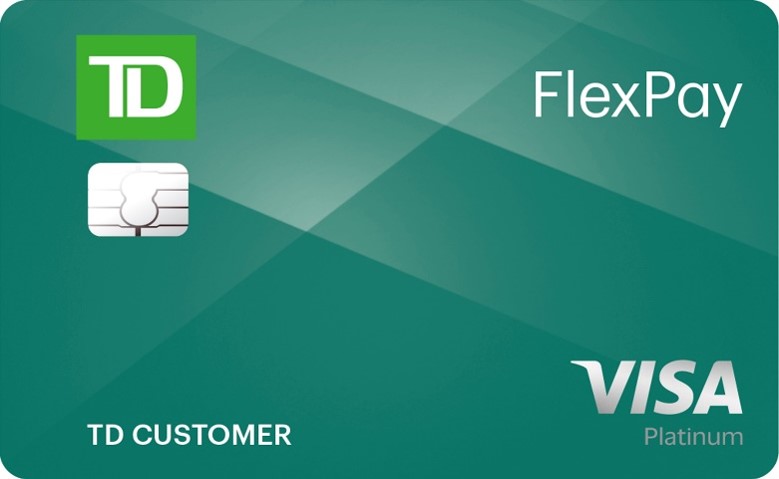TD Double Up Credit Card Review
The TD Double Up℠ Credit Card is a compelling flat-rate rewards card as it offers unlimited 2% cash back on all purchases. There is a modest sign-up bonus and an intro APR on balance transfers. However, this offer is only available in select states.
Intro Bonus
Earn $200 Cash Back in the form of a statement credit when you spend $1,500 within the first 90 days after account opening
Rewards
Earn unlimited 2% Cash Back on all eligible purchases – no rotating Spend Categories, no caps or limits as long as your credit card account is open and in good standing.
Purchase and Balance Transfer APR
0% introductory APR on balance transfers for the first 15 billing cycles after account opening. After that a 19.24%, 24.24% or 29.24% variable APR based on your creditworthiness. A 19.24%, 24.24% or 29.24% variable APR based on your creditworthiness applies to purchases.
Recommended Credit Score
Good – Excellent
670 – 850*
Annual Fee
$0
CardCritics™ Opinion
This is a good card for those who will take advantage of the 2% cash back, or who have high-interest balances they want to pay off. The interest rate on purchases, as well as on balance transfers after the introductory period, is high, so you don’t want to carry a balance on this card.
Our Critical Analysis:
TD Double Up℠ Credit Card
- Unlimited 2% cash back on all purchases
- Intro APR on balance transfers
- No annual fee
PROS
- No intro APR on purchases
- Only available in some states
- 3% foreign transaction fee
CONS
Rewards
The TD Double Up℠ Credit Card pays 2% cash back on all eligible purchases. You don’t have to keep track of spending categories to get extra cash back – it’s 2% on everything, all the time. Plus, there are no caps or limits, so if you charge $50,000 in eligible purchases, you get $1,000 cash back.
Welcome Bonus
New cardholders can earn a $200 cash back bonus in the form of a statement credit when they spend at least $1,500 in the first 90 days after account opening. This welcome bonus is on the lower side compared to other cash back cards, but not by much.
Intro APR Benefits
If you transfer balances from other credit cards to your TD Double Up℠ Credit Card, you will pay a 0% introductory APR on balance transfers for the first 15 billing cycles after account opening. After that a 19.24%, 24.24% or 29.24% variable APR based on your creditworthiness. A 19.24%, 24.24% or 29.24% variable APR based on your creditworthiness applies to purchases. This means it’s a great option if you want to pay off high-interest balances faster, but not a great option if you are planning to carry a balance from month to month on other purchases.
Fees
The TD Double Up℠ Credit Card has no annual fee.
Late payment and returned payment fees are up to $40. The TD Double Up℠ Credit Card changes a foreign transaction fee of 3%.
Additional Benefits
There are several Visa benefits like cell phone protection when you pay your monthly mobile bill with your card, travel benefits, and entertainment benefits. You can find all of the terms and details by clicking the ‘Apply Now’ button.
What Makes the Card Stand Out
Most cashback cards offer 1% or 1.5% cash back across the board, and some offer higher amounts on certain types of purchases, at certain times, and up to certain limits. The TD Double Up℠ Credit Card offers 2% cash back all the time on everything.
Is It the Right Card For You?
The TD Double Up℠ Credit Card may be the right fit for you if any of the following apply:
- You use a credit card for a lot of purchases but pay off your balance at the end of the month.
- You have high-interest balances you want to pay off.
- You don’t want to have to keep track of rotating spending categories for extra cash back.
- You don’t want to pay an annual fee.
- You live in one of the following states: CT, DC, DE, FL, MA, MD, ME, NC, NH, NJ, NY, PA, RI, SC, VA or VT.
Card Details From TD Bank
- Bonus Cash Back: Earn $200 Cash Back in the form of a statement credit when you spend $1,500 within the first 90 days after account opening
- Earn unlimited 2% Cash Back on all eligible purchases
- No reward categories, no caps, no worries.
- Get Visa benefits like cell phone protection when you pay your monthly mobile bill with your card
- No annual fee
- Contactless Payments/Digital Wallet
- Instant credit card replacement
- Must be a resident of CT, DC, DE, FL, MA, MD, ME, NC, NH, NJ, NY, PA, RI, SC, VA or VT.
Frequently Asked Questions
What credit score is needed for the TD Double Up℠ Credit Card?
The TD Double Up℠ Credit Card requires good to excellent credit. Typically a FICO credit score of 670 or above meets this criteria. However, having a credit score of 670 or above does not guarantee approval since other factors are taken into consideration.
Does the TD Double Up℠ Credit Card charge an annual fee?
No. The TD Double Up℠ Credit Card does not charge an annual fee.
Does the TD Double Up℠ Credit Card charge a foreign transaction fee?
Yes. The TD Double Up℠ Credit Card charges a foreign transaction fee of 3% of each transaction in U.S. dollars.
Editorial Note: Any opinions, analyses, reviews or recommendations expressed are those of the author’s alone, and have not been reviewed, approved or otherwise endorsed by any card issuer.
*CardCritics™ references a FICO® 8 score, which is one of many different types of credit scores. A financial institution may use a different score when evaluating your application.













